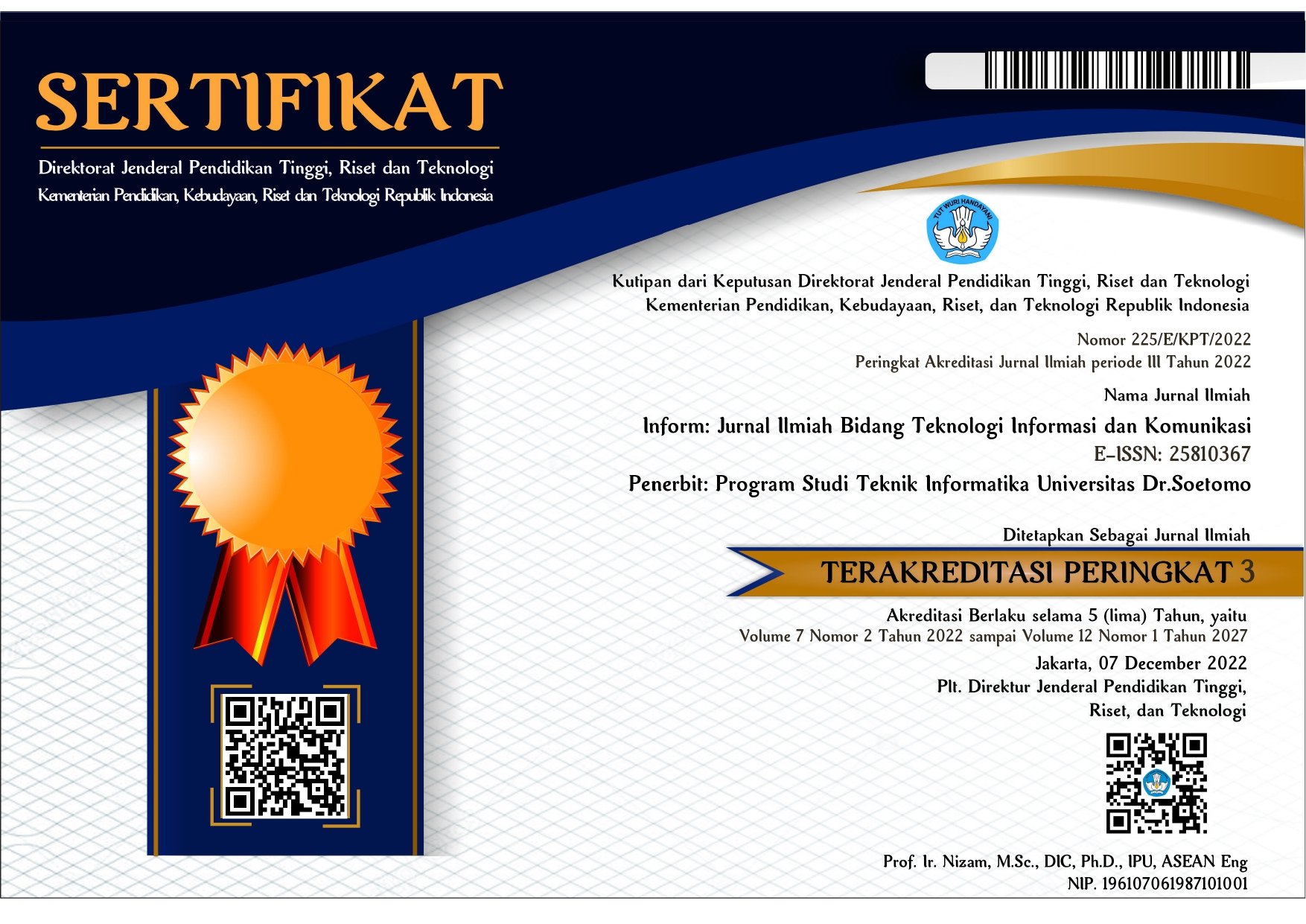Application of Fuzzy C-Means in Grouping Districts/Cities Based on Health Service Facilities in East Java
 Abstract views: 390
,
Abstract views: 390
,
 PDF downloads: 302
PDF downloads: 302
Abstract
Health is a very important thing for every human being because without good health, then humans will be difficult to do activities. We need health facilities that can support human health or society. This study discussed use of clustering algorithm in grouping districts or cities in East Java according to the number of health care facilities using Fuzzy C-Means. The data source of this research got from Central Bureau of Statistics of East Java. The cluster results obtained then validated with sillhoute coefficient and purity. With the centroid gained in the last iteration, four districts/cities were included in the first cluster, 26 districts/cities included in the second cluster, and 8 districts/cities included in the third cluster. The results of clustering validation is the value of sillhoute coefficient of 0.695 and the purity value of 1. This can be a suggestion to the East Java provincial government, districts / municipalities that are more concerned with having the number of health facilities based on the cluster that has been done.
Keywords— data mining; health facilities; clustering; fuzzy c-means; sillhoute coefficient; purity
Copyright (c) 2018 Wardatul Maghfiroh, Nurissaidah Ulinnuha

This work is licensed under a Creative Commons Attribution-ShareAlike 4.0 International License.
Authors who publish with Inform: Jurnal Ilmiah Bidang Teknologi Informasi dan Komunikasi agree to the following terms:
-
Authors retain copyright and grant the journal right of first publication with the work simultaneously licensed under a Creative Commons Attribution License (CC BY-SA 4.0) that allows others to share the work with an acknowledgment of the work's authorship and initial publication in this journal.
-
Authors are able to enter into separate, additional contractual arrangements for the non-exclusive distribution of the journal's published version of the work (e.g., post it to an institutional repository or publish it in a book), with an acknowledgment of its initial publication in this journal.
-
Authors are permitted and encouraged to post their work online (e.g., in institutional repositories or on their website) prior to and during the submission process, as it can lead to productive exchanges, as well as earlier and greater citation of published work.













